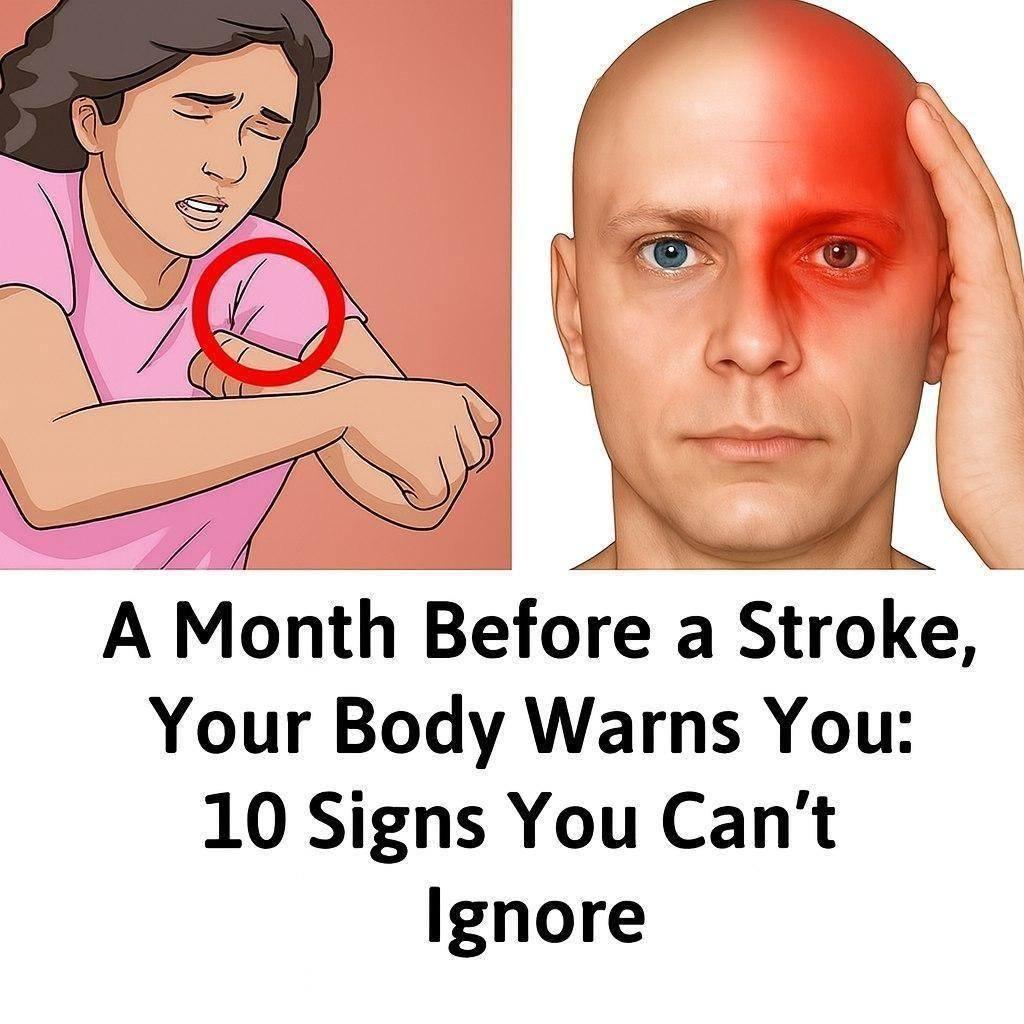Blurred vision, double vision, or sudden loss of sight in one eye/half of the field may show up before a stroke. In fact, visual issues are among the early symptoms when the brain’s blood supply is compromised. The Times of India+1
Be alert to:
-
One eye that goes dark temporarily.
-
Double vision that resolves then recurs.
-
Vision blur when lying down or awakening.
3. Numbness or Weakness (Often One Side)
Weakness or numbness in the face, arm or leg—especially if it’s one side—is a classic warning sign of stroke. And it may appear intermittently before the major event. Northwestern Medicine+1
Key question:
-
Did one arm feel “off” for a few minutes then recover?
-
Did you notice the face droop when you smiled?
4. Speech Difficulties or Confusion
If you have trouble finding words, your speech becomes slurred, or you feel unusually confused—don’t brush it off. These could indicate that the part of the brain responsible for language or comprehension is under stress. The Times of India+1
Signs to watch:
-
Slurred words lasting minutes.
-
Pausing when speaking because you can’t recall a simple word.
-
Asking someone to repeat themselves repeatedly.
5. Dizziness, Loss of Balance or Coordination
Suddenly feeling unsteady, stumbling, or a sense of room‑spinning (vertigo) may have deeper roots than just inner‐ear issues. Reduced blood flow to the brain’s balance/coordination areas may show up weeks before a stroke. IP Live in Care+1
Consider this if:
-
You suddenly find it hard to walk straight.
-
You feel dizzy without obvious cause (e.g., no medication change, no dehydration).
6. Sudden Fatigue or Unexplained Exhaustion
Feeling unusually drained, even after adequate sleep, may be more than just overwork—it can be an early indicator that brain cells are struggling with less oxygen than usual. Aayush Hospital
Ask yourself:
-
Is this different from my normal tiredness?
-
Have I been dropping tasks or forgetting steps lately?
7. Memory or Cognitive Changes
Tiny lapses in memory, confusion about familiar tasks, or difficulty focusing may hint at underlying vascular issues in the brain. These subtle signs may precede a stroke. Aayush Hospital
Be alert if you notice:
-
Forgetting simple routes you’ve taken for years.
-
Trouble focusing on a conversation.
8. Mood or Behavior Shifts
Mood changes—such as sudden irritability, depression or anxiety—can be subtle signals of brain health deteriorating. According to some reports, changes in emotion or behavior may precede stroke. Aayush Hospital
Consider this if:
-
You’ve been unusually emotional without apparent reason.
-
You find yourself having unexplained outbursts.
9. Short Episodes of Vision or Speech Loss (Mini‑Strokes/TIAs)
If you experienced brief episodes with stroke‐like symptoms that resolved within minutes or hours—this is a major warning sign. These “mini‐strokes” or TIAs significantly raise your risk of a full stroke. Health+1
Examples:
-
Sudden numbness that faded after ten minutes.
-
Temporary “blacking out” of vision in one eye for a few minutes.
10. Unexplained or New Onset High Blood Pressure or Arrhythmia
While not always noticed as a “symptom”, sudden worsening of blood pressure, irregular heartbeat (especially atrial fibrillation) or even an unexplained spike in blood pressure may signal heightened stroke risk. Many strokes are caused by underlying vascular conditions. Aayush Hospital
If you’ve had:
-
A new arrhythmia diagnosed.
-
Sudden high BP despite previous control.
What to Do NOW
⏱ Don’t Wait: Time Matters
Whether it’s days or weeks ahead, these warning signs warrant action. If you notice any of the above—even if it resolves quickly—seek medical attention. According to the NHS and other authorities, transient symptoms should not be ignored. nhs.uk+1
📋 Talk to Your Doctor
-
Document when symptoms occurred, how long they lasted, what you were doing.
-
Mention concerns of “pre‐stroke” or TIA to your doctor—tell them you may have had warning signs.
-
Ask for tests: MRI/CT scans, carotid ultrasound, echocardiogram, blood tests (cholesterol, clotting, sugar).
🧬 Review Risk Factors
Ensure your risk factors are under control:
-
Blood pressure, cholesterol, diabetes
-
Atrial fibrillation or other heart conditions
-
Smoking, sedentary lifestyle, excessive alcohol
-
Obesity, poor diet
🩺 Consider Preventive Treatment
Your doctor may prescribe medication (antiplatelets, anticoagulants), recommend lifestyle changes, or refer you to a neurologist. The goal: prevent the major event before it happens. stjohns.ufhealth.org
Final Thoughts
It’s easy to dismiss a fleeting headache, a moment of dizziness or odd slurred sentence—but these could be your brain’s quiet alarm system telling you something is wrong.
When the image above says “A month before a stroke, your body warns you: 10 signs you can’t ignore,” it’s not scare‑tactics—it’s awareness. Recognise the signs, act early, and you might prevent the most devastating outcomes.

